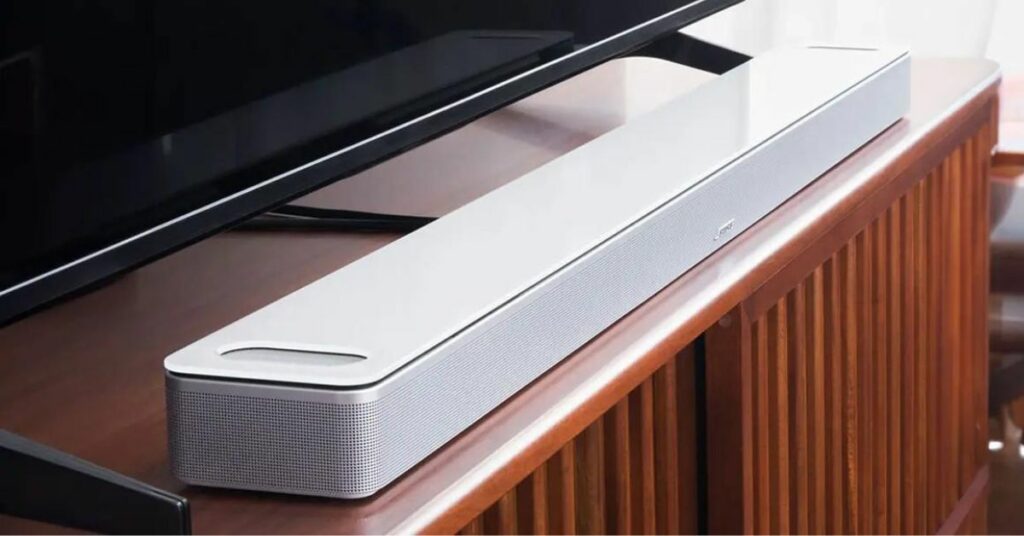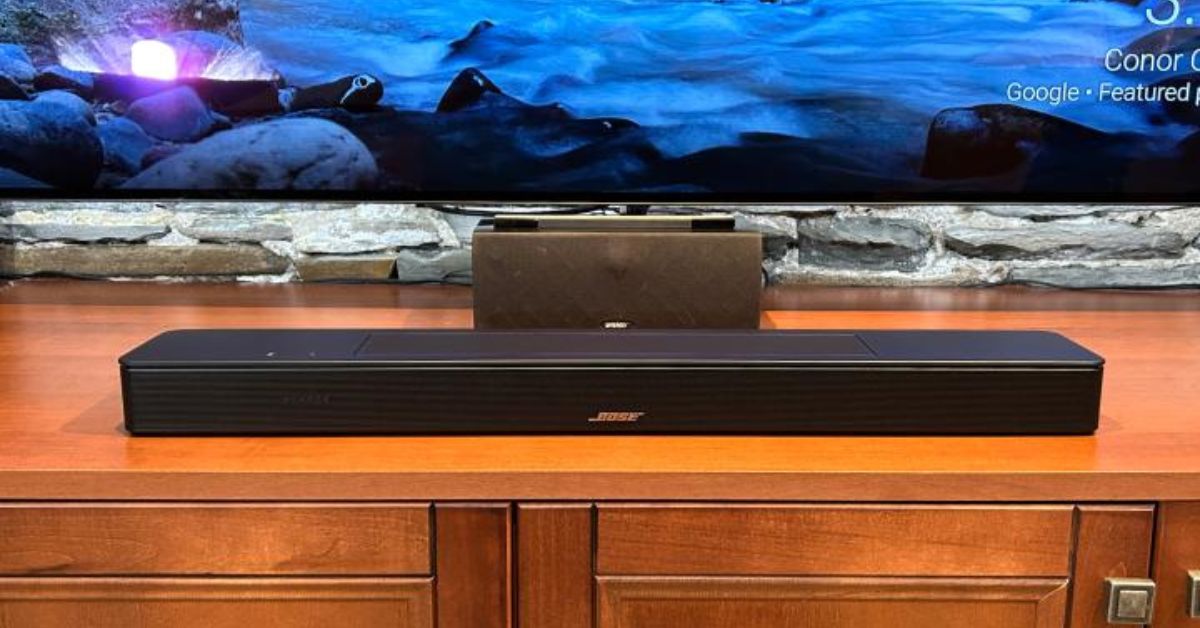In the ever-evolving landscape of home entertainment, the combination of a high-quality soundbar and a state-of-the-art television is often the key to an immersive audiovisual experience.
However, users occasionally encounter challenges when trying to integrate different brands of audio and video equipment. One common issue reported by users is the Bose Soundbar not working seamlessly with Samsung TVs.
In this comprehensive guide, we will explore the potential reasons behind this compatibility issue and provide step-by-step troubleshooting solutions to help you enjoy the full potential of your Bose Soundbar with your Samsung TV.
Understanding the Compatibility Challenge
Before delving into the troubleshooting process, it’s essential to understand why compatibility issues may arise between Bose Soundbars and Samsung TVs.

Both Bose and Samsung are reputable brands, but the intricacies of technology and software variations can sometimes lead to communication breakdowns.
Issues may range from connectivity problems to software conflicts or outdated firmware.
Troubleshooting Steps
- Check Physical Connections: Ensure that all physical connections between the Bose Soundbar and the Samsung TV are secure. Start by inspecting the HDMI or optical cables connecting the soundbar to the TV. If you are using HDMI ARC (Audio Return Channel), make sure it’s connected to the ARC-enabled HDMI port on both devices. Also, confirm that the power cables are properly plugged in.
- Verify Input Settings: Check the input settings on both the soundbar and the TV to ensure they are synchronized. On the Bose Soundbar, use the remote control to select the correct input source. For Samsung TVs, navigate to the settings menu and select the corresponding audio output option that matches the connection type (HDMI ARC or optical).
- Update Firmware: Outdated firmware can often lead to compatibility issues. Check for firmware updates for both the Bose Soundbar and the Samsung TV. Visit the official websites of both companies and follow the instructions to download and install the latest firmware updates. This step is crucial as manufacturers regularly release updates to address compatibility issues and improve overall performance.
- Power Cycle Devices: Sometimes, a simple power cycle can resolve communication glitches. Turn off both the Bose Soundbar and the Samsung TV. Unplug them from the power source, wait for a few minutes, and then plug them back in. Power on the devices and check if the soundbar is now working as expected.
- Check TV Sound Settings: Navigate to the audio settings on your Samsung TV and ensure that the correct audio output is selected. Some Samsung TVs have specific audio settings for external devices, so make sure to explore these options. Additionally, verify that the TV’s volume is not muted or set to an extremely low level.
- Reset Audio Settings: Resetting audio settings on both the soundbar and the TV can eliminate any custom configurations that might be causing issues. Refer to the user manuals of both devices for instructions on how to reset audio settings. After resetting, reconfigure the settings according to your preferences.
- Try Alternate Connection Methods: If HDMI ARC or optical connections are not resolving the issue, consider trying alternative methods. Connect the soundbar using Bluetooth or auxiliary cables to see if the audio output improves. This can help identify whether the issue lies with a specific type of connection.
- Contact Customer Support: If all else fails, reach out to the customer support teams of both Bose and Samsung. Provide them with detailed information about the issue, including the models of your soundbar and TV, firmware versions, and any troubleshooting steps you’ve already taken. Customer support representatives are often well-equipped to guide you through advanced troubleshooting or offer specific solutions tailored to your setup.
Integrating a Bose Soundbar with a Samsung TV can significantly enhance your home entertainment experience, but compatibility issues may arise from time to time.
By following the troubleshooting steps outlined in this guide, you can systematically identify and address the potential challenges.
Remember to be patient and thorough in your approach, as solving compatibility issues often involves a combination of hardware and software adjustments.
With the right troubleshooting steps, you can unlock the full potential of your Bose Soundbar and Samsung TV, enjoying a seamless audiovisual experience.
Frequently Asked Questions
Why is my Bose Soundbar not producing sound when connected to my Samsung TV?
The issue might stem from loose physical connections, mismatched input settings, or outdated firmware. Start by checking cables and ensuring the correct input source on the soundbar. Verify your TV’s audio settings and update both the soundbar and TV firmware. Power cycling devices and exploring alternative connection methods can also help troubleshoot the problem.
Can I use Bluetooth to connect my Bose Soundbar to my Samsung TV?
Yes, Bluetooth is a viable alternative. If HDMI or optical connections aren’t working, pair your Bose Soundbar with the Samsung TV via Bluetooth. Ensure both devices have Bluetooth functionality, and follow the user manuals for step-by-step pairing instructions. Bluetooth connections provide flexibility and can help identify whether the issue lies with specific types of physical connections.
How do I reset audio settings on my Bose Soundbar and Samsung TV?
Refer to the user manuals for specific instructions on resetting audio settings. Generally, the process involves accessing the settings menu on both devices, navigating to audio or sound options, and selecting the reset or default settings option. Resetting audio configurations can eliminate custom settings that might be causing compatibility issues and allow you to start with a clean slate.
What should I do if updating firmware doesn’t resolve the issue?
If firmware updates don’t solve the problem, ensure that you’ve updated both the Bose Soundbar and Samsung TV to the latest versions available on their official websites. If the issue persists, contact customer support for both devices. Provide detailed information about your setup, firmware versions, and troubleshooting steps taken. Customer support can offer further guidance and may have specific solutions tailored to your situation.
Is there a specific audio output setting on my Samsung TV for external devices?
Yes, navigate to your Samsung TV’s settings menu and look for audio or sound options. Depending on the model, you may find specific settings for external devices or audio outputs. Select the appropriate output option that matches your connection type (HDMI ARC or optical). Adjusting these settings ensures that your Samsung TV sends audio signals correctly to the Bose Soundbar, resolving potential compatibility issues.

